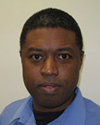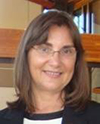Spatial Information Science
President | |
 | Sisi Zlatanova
|
Vice President 2021-22, Secretary 2016-21 | |
 | George Sithole
|
Secretary 2021-22 | |
 | Jack Barton
|
Vice President 2016-21 | |
 | Suzana Dragicevic
|
Terms of Reference
Considering the state of the art in Spatial Information Science and the ISPRS TC IV 2012-2016 resolution, we define the following ToF:
- Strengthen the work on multidimensional spatial model and representations towards seamless data fusion (WG1)
- Advance the semantic modelling, development and linking of ontologies (WG2)
- Intensify the research data interpretation, quality and uncertainty modeling (WG3)
- Strengthen the research on crowdsourced data and public participation, towards community-driven and participatory applications, collaborative mapping and use/usability of maps (WG 4)
- Stringent the research on seamless indoor/outdoor location-based services, navigation and tracking, and analysis of human movement (WG5)
- Advance interoperable Internet of Things, Sensor web, SDI and linked data (WG6)
- Advance the research on spatial data types, indexing methods and analysis to further contribute to development of spatial DBMS for management and analysis of multi-dimensional data (WG7)
- Encourage the use of functional programming and streaming algorithms in development of demos and applications as well as parallel and distributed processing paradigms. (WG8)
- Advance visual analytics, online multi-dimensional visualization on mobile and desktop devices, considering human-centered applications, privacy and security issues (WG9)
- Advance knowledge on use of spatial information (BIM/GIS) for urban modelling (WG10)
WORKING GROUPS of ISPRS COMMISSION IV
INTERCOMMISSION WGs of ISPRS COMMISSION IV
WG IV/1 - Multi-dimensional Modelling
Co-Chair
Pawel Boguslawski
Secretary
Ken Arroyo Ohori
WG IV/1 Terms of Reference
- Reviewing conceptual models for spatial, temporal and spatiotemporal data
- Encourage the development of new models integrating time and scale dimensions with the spatial dimensions
- Investigating new algorithms and data structures taking advantage of multiple dimensions
- Investigating multidimensional models for multiple representation of data for data enrichment
- Promoting the use of these models in geospatial applications
- Facilitating exchanges between researchers on conceptual modelling and actors in GIS applications
- Integrating multisource data into open formats and encouraging the use of standards for sharing geospatial data and resources
- Promoting the use of multidimensional models in geospatial applications in collaboration with WGI/IV and ICWGIV/II
WG IV/2 - Ontologies, Semantics, and Knowledge Representation for Geospatial Information
Co-Chair
Mir Abolfazl Mostafavi
Secretary
Francesca Noardo
WG IV/2 Terms of Reference
In order to describe the scope and limitations of the activities of WG IV/2 the following terms of reference have been defined:
- Explore recent advances in geospatial ontologies, semantics, and knowledge representation.
- Explore ontologies and semantics of cutting edge research topics such as semantic web, big data, linked data, and Volunteered Geographic Information.
- Work on spatial ontologies and semantics data quality and standards.
- Study the development, integration, and evolution of domain geospatial ontologies, classifications, nomenclatures, etc. (land use / land cover, hydrography, etc.).
- Investigate new applications of ontologies in domains such as disaster management, urban modeling, mobility, and architecture.
- Research formalisms, methods, and tools for semantic information representation, extraction, and visualization related to geospatial entities and events.
- Explore topics related to semantic interoperability, semantic similarity, semantic enrichments and semantic annotation, etc.
WG IV/3 - Spatial Data Analysis, Statistics and Uncertainty Modelling
Co-Chair
Gerhard Navratil
Co-Chair
Jamal Jokar Arsanjani
Secretary
Ana-Maria Olteanu-Raimond
WG IV/3 Terms of Reference
- Review data mining methods applicable to spatial data
- Review methods for spatial data quality assessment for the several types of spatial data
- Develop new algorithms and/or combination of methodologies to integrate different types of spatial data
- Develop methods to assess quality of information resulting from data integration
- Advance knowledge in assessing spatial data fitness for use
- Performance assessment of spatial data optimization methods
- Development and evaluation of innovative algorithms and software tools of interoperability in GIScience
- Evaluation of various multi-criteria decision making methods
- Review crowd sourced data and VGI
- Address challenges in big spatial data on GISciences
- Investigation and evaluation of spatial data fusion/integration methods
- Review spatial statistics methods and their uncertainty assessment
- Review interoperability in spatial data bases
WG IV/4 - Collaborative Crowdsourced Cloud Mapping (C³M)
Chair
Maria Antonia Brovelli
Co-Chair
Cidália Costa Fonte
WG IV/4 Terms of Reference
- Design and develop collaborative geospatial environments and services for managing crowdsourced spatiotemporal data (acquiring, storing, publishing, sharing).
- Design and develop methods (and guidelines) for assessing/improving the quality and usability of crowdsourced data (validation and verification).
- Design and develop data and metadata models for crowdsourced data.
- Design and develop methods (and guidelines) for integrating crowdsourced data and
- in situ/UAV/aerial/satellite sensor data;
- authoritative geospatial information.
- Investigate social and organizational issues related to crowdsourcing, cloud-based geo-services, collaborative systems, participative platforms.
- Provide guidelines and support to connect the ISPRS network to humanitarian and SDG agendas.
- Review the scientific and technological state of art in Human-Machine Interaction.
- Advance knowledge in Human-Machine Interaction for Participative Mapping.
- Promote cooperation with related working groups and organizations including ISPRS WG IV/5; International Federation of Surveyors (FIG) - Commission of Spatial Information Management; GeoForAll; Humanitarian OpenStreetMap Team (HOT); International Cartographic Association (ICA) - Commission on Sensor-driven mapping, Commission on Maps and the Internet, Commission on Open Source Geospatial Technologies; Missing Maps; Open Geospatial Consortium (OGC); Open Source Geospatial Foundation (OSGeo); OpenStreetMap (OSM) communities; crisismappers network, digital humanitarian network and Open Forum on Participatory Geographic Information Systems and Technologies.
- Promote special issues with the ISPRS International Journal of Geo-Information and other related journals as well as books and reports.
- Involve master and PhD students and young researchers in a flagship initiative related to crowdsourcing (network of young volunteer mappers), coordinating this initiative with the HOT YouthMappers one.
WG IV/5 - Indoor/Outdoor Seamless Modelling, LBS and Mobility
Co-Chair
Kourosh Khoshelham
Co-Chair
Lucía Díaz Vilariño
WG IV/5 Terms of Reference
- Stimulate the development of algorithms, standards for semantic modelling of indoor/outdoor seamless environments
- Promote integrated processing of semantic and spatial data for location based services and disaster management in indoor/outdoor (including underground) seamless environments (in collaboration with WG IV/1, WG IV/4, WG I/6, WG I/7, WG II/3, ICWG I/IV and ICWG III/IVa).
- Advance knowledge in location-based big data and pedestrian movement in indoor/outdoor seamless environments.
- Benchmark the quality and practicality of semantic modelling methods, standards and mobility analysis algorithms.
- Seek co-operation and involvement in the BIM and GML domains (in collaboration with OGC)
WG IV/6 - SDI: Internet of Things and Spatial Decision Support
Co-Chair
Giuseppina Vacca
WG IV/6 Terms of Reference
- Advance interoperable spatial data infrastructure (SDI), Internet of Things (IoT), Sensor Web, and spatial decision support system (SDSS) standards, algorithms, and system architecture
- Investigate efficient ways to connect, access, and task resource-constrained IoT and Sensor Web devices and sensors
- Develop and manage multi-level (national, regional and global) geospatial databases
- Advance knowledge in spatial data infrastructure and cyber infrastructure
- Promote spatial enablement of government and community
- Promote innovations in geospatial data access, integration, sharing and use
- Promote highly efficient data acquisition and processing from multiple sources including field surveying, remote sensing, real-time sensors and crowdsourcing
- Synchronize disparate geospatial resources to provide useful and usable frameworks that can be integrated with environmental and socio-economic data for research, discovery and web services
- Advance sensor data stream processing algorithms and architecture
- Design, develop, and evaluate innovative SDI, IoT, Sensor Web and SDSS applications
- Design, develop and benchmark implementation interfaces for the abstract ISO standards
- Collaborate with private sector industry to develop and evaluate data format definitions, meta data and software libraries
- Attend and cooperate with the related groups such as OGC working groups (e.g., SWE DWG, SensorThings API SWG, etc.), open source communities (e.g., FOSS4G, Eclipse LocationTech, etc.), ISO/TC-211 meetings, international efforts (GEOSS, Digital Earth, UNSDI, INSPIRE and GMES) and organizations (GSDI, WGISS, ICA, W3C, and EuroSDR)
- Work closely with ISPRS WGs IV/4, IV/5, IV/7, IV/8 and IV/11
WG IV/7 - Geo-Data Management
Co-Chair
Emmanuel Stefanakis
Secretary
Paul Vincent Kuper
WG IV/7 Terms of Reference
The working group investigates new ways to manage n-dimensional geometric, topological, and semantic data handled by DBMS from a broad range of sources such as sensors, BIM, GIS, mobile devices, and others. By doing so it advances the enhancement of standards for metadata, data, and services as well as data integration from different disciplines.
The working group advances interfaces to other commissions and working groups such as WG II/3 on Point Cloud Processing, WG IV/1 on Multi-Dimensional Modelling, WG IV/2 on Ontology, Semantics and Knowledge Representation, as well as to WG IV/8 on GeoComputation and WG IV/9 on GeoVisualization.
- Review technical progress and OGC standards for Geo-Data Management.
- Develop new concepts to store and retrieve Big Geo-Data for knowledge discovery.
- Advance knowledge in geo-data access methods, geometric and topological relations, geo-data aggregation, integration and scalability.
WG IV/8 - GeoComputation and GeoSimulation
WG IV/8 Terms of Reference
- Promote the development and application of geocomputational (e.g. geostatistical, econometric, machine learning) methods and algorithms for processing spatio-temporal data.
- Explore the use of spatio-temporal data for large scale predictive analytics.
- Explore and promote the use of machine learning methods (Neural networks, Genetic algorithms, and Evolutionary computing, etc.) in the GISciences.
- Explore and promote the use of agent-based simulation and cellular automata in modelling geospatial processes and human behaviour, and study their validation.
- Promote the development of geocomputational algorithms for large-scale network data analysis.
- Explore the potential of using high performance computing (cloud computing and grid computation) for modelling large scale spatio-temporal processes.
- Encourage applications in urban studies of geodemographics, health, criminology and transport; in environmental, ecological and biological modeling and analysis; and in modeling mobile, wireless, and location-based service networks, amongst others.
- Educate the ISPRS community and the next generation of GIScientists on tools and techniques of GeoComputation and GeoSimulation.
WG IV/9 - Geovisualization, Augmented and Virtual Reality
Co-Chair
Sidonie Christophe
Secretary
Victoria Rautenbach
Co-Chair 2016-2022
Chris Pettit
WG IV/9 Terms of Reference
- Enhanced communication of geographic information and knowledge
- Geovisual analytics for (small and) big data exploration
- Usability testing and empirical experiments related to spatial cognition and visualization
- Geographic visualisation of multi-dimensional data
- Novel methods and tools for exploring and visualizing geographic decision spaces
- Platforms supporting geographical visualisation including the web and mobile devices
- Geographic visualisation of crowd sourced, social media, and government databases
- Development, application and evaluations of immersive and semi-immersive virtual reality visualization environments
- Virtual and augmented reality representations of space, place and time
WG IV/10 - Advanced Geospatial Applications for Smart Cities and Regions
WG IV/10 Terms of Reference
- Review optimum methodologies for the integration of spatial data with heterogeneous data sources in order to achieve harmonized, possibly standard-based data repositories to be used as integrated data source.
- Advance knowledge about how to help urban models profit from Building Information Models (BIM), in that the gap between GIS and BIM is reduced.
- Develop innovative geospatial applications for digital cities and regions, based on integrated semantic regional or city models (possibly 3D).
- Promote testing, adoption and further development of standardized data models in order to overcome single-domain lock-ins and facilitate implementation of inter-domain applications.
- Foster communication among scientists and practitioners from heterogeneous applications domains, in order to facilitate understanding of common problems and reduce the gap – whenever possible – between homologous, sometimes incompatible, solutions.
- Disseminate new technical and methodological advances, innovations and research outcomes in the field of both academic audiences (e.g. publications, seminars, workshops) and public (e.g. blog posts, exhibitions, public talks).
- Establish strong links between relevant international and regional organizations in order to achieve fruitful collaboration.
ICWG IV/III - Global Mapping: Updating, Verification and Interoperability
ICWG IV/III Terms of Reference
- Advance knowledge on the global status of mapping and it’s updating in databases. This is of particular importance for countries with large areas for which imagery has provided interim information.
- Investigate the update and verification of topographic vector datasets, digital terrain models, ortho-images and thematic (land cover) datasets from remotely sensed data with an emphasis on mapping in a production environment.
- Assess links between high resolution images and mapping tools developed through research and their implementation in mapping agencies and commercial organisations.
- Investigate synergy potentials between the various sensors for topographic and thematic mapping.
- Determine optimum methodologies for the integration of mapping data with heterogeneous data sources including the results of area frame sampling methods like LUCAS for Europe or GMFS for Africa.
- Review technical progress on global DEM data fusion methods and outcomes
- Evaluate semi-automated and automated algorithms for change detection, update and quality control of spatial databases.
- Evaluate web services for GLC data sharing, processing and validation
- Identify best practise applications of geospatial datasets and promote pathways leading from interoperability via uniformity towards standardization
- Collaborate with UN-GGIM and GEO tasks related to GLC (e.g., SB-02)
- Strengthen the cooperation and knowledge exchange between regional clusters according to the UN-GGIM groups, especially between Europe and Africa
- Promote the incorporation of administrations and industries in the development of application products of global and regional geospatial data sets